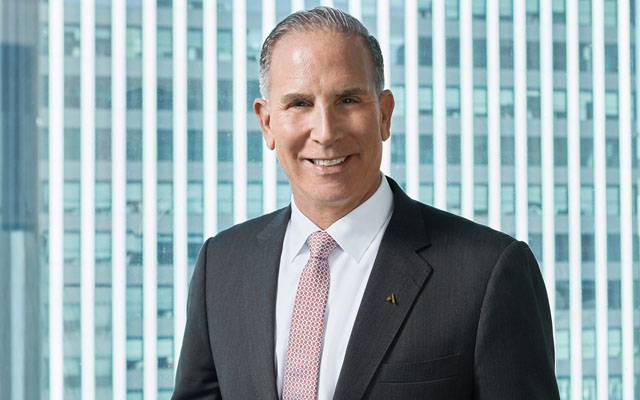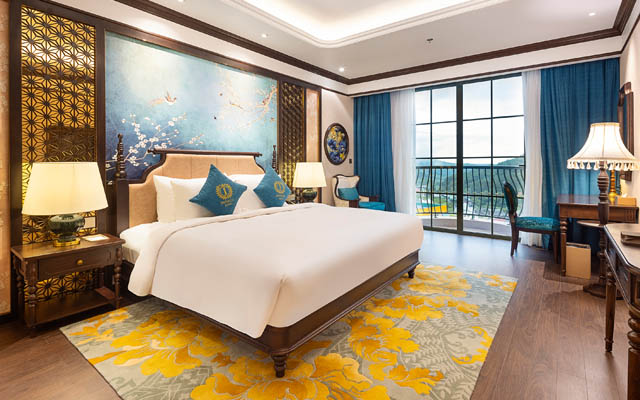With China making a comeback after lifting pandemic restrictions, Gary Rosen, CEO of Accor Greater China, discusses the growth prospects in the country and challenges that arise
 Accor underwent a global organisational restructuring several years ago – what has it achieved?
Accor underwent a global organisational restructuring several years ago – what has it achieved?
Accor reorganised into two divisions – Economy, Mid-scale and Premium, and Luxury and Lifestyle – everywhere except Greater China, where I am privileged to oversee all sectors. China is unique and it made sense to maintain the continuity and retain singular focus. For development, Greater China is very different when you think about technology, loyalty, consumer behaviour and interaction.
Accor signed partnership agreements with Funyard Hotels & Resorts and Sunmei Digital Intelligence Technology Group in 2022. How do you anticipate them fuelling Accor’s growth?
These groups excite us. The Mövenpick (by Accor) partnership with Sunmei in particular is exceeding expectations with great hotels open, opening and in the pipeline. Its first Mövenpick hotel opened in Qingdao last year. Funyard – Country Garden’s core enterprise – had its first opening in Hangzhou: Jo&Joe was a strong lifestyle brand entry, a good launch pad for further developments.
All our partnerships share values, vision and trust, but each company has very different focus and expertise. We hope for an update or new opportunity by early 2025, like bringing new brands to the region, such as Tribe.
Does China need more new brands and hotels?
China needs more hotels. It’s among the top two countries for hotel growth and undoubtedly will become the world’s largest tourism market considering its domestic market and returning inbound travellers.
There is still huge growth for existing brands. We introduced our extended-stay brand Adagio from France to Chengdu, opening next year in that growing market. (However, we want) quality of growth; we’re not chasing numbers.
China’s vast market keeps offering opportunities, especially in economy and mid-scale hotels. We see continued demand for premium products. However, you must have a reason, and be discerning in placing luxury.
And, why create new brands when we have brands people love?
What are the key challenges of expanding Accor in China?
Understanding whom you partner, and balancing partners. You have to recognise that growth comes from many different quarters and see how you can be flexible (and) structured to handle them.
Greater China uses technology very differently from the rest of the world. We spent recent years completely rebuilding technology, localising it from the reservation system to loyalty and every aspect of business, and during the pandemic, building an entirely local ecosystem within Tencent and WeChat.
The domestic market is expected to drive recovery, and most guests book direct. Will this change how Accor regards its travel trade partners, like agents?
Consumers evolve, so we must too. I think there will always be a demand for agents in luxury stays, and all agents deal with high-end luxury. Specialist and online travel agents will have futures.
Today, people research in different ways and China has a significant population that book through Ctrip. We’ve created client-centric programmes with strategic partners, and we are the only company to have created a loyalty programme for Mainland China members with Ctrip.
Have you covered every segment you want in China?
There will be enormous growth for lifestyle brands, like our first in Greater China – the Mondrian Hotel in Hong Kong – and Jo&Joe in the Mainland China economy sector for lifestyle. Our restaurant brands, like Paris Society, stand on their own. There is more to lifestyle than a hotel room – restaurants and entertainment are equally important.
Which segments have done well after Covid-19?
Deluxe still feels the pinch, especially outside key cities. Luxury’s rates have suffered, but when you look at premium and mid-scale, there is still volume and trip numbers. People are spending differently. Covid-19 taught them that they did not need to sacrifice the ability to travel and discover. There is a huge Hong Kong market for high-end luxury experiences, food and beverage, (as well as) providing a unique cross-border opportunity.
Bearing in mind current macro challenges, how do you think business will pan out for hotels over the next few years?
Development is not slowing down. Having the right brands that owners want and guests love is not a challenge, it’s being disciplined: that’s our approach. That means developing the right brand, the right partner, and the right market – not every brand in every market.


















